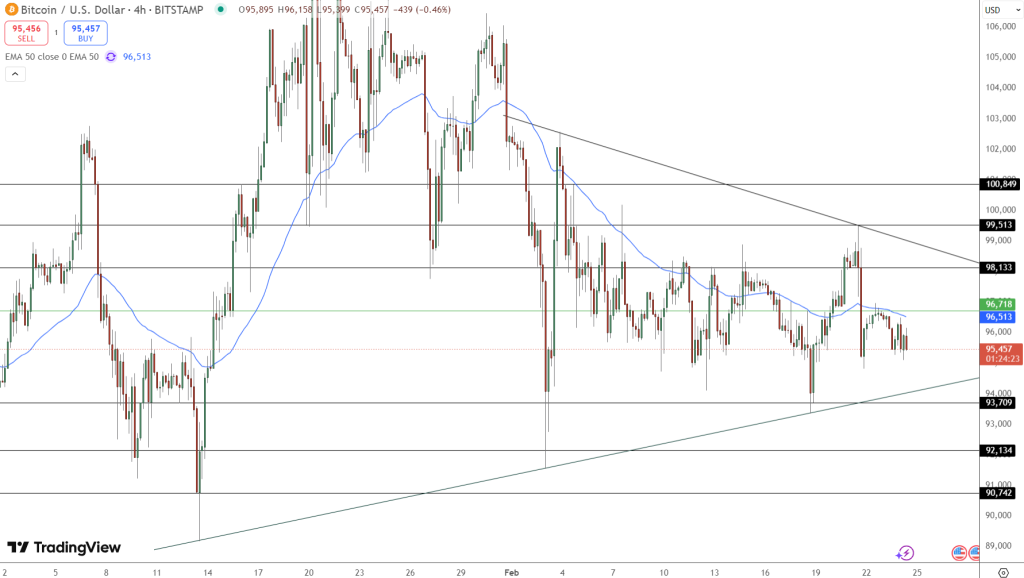Last updated:
 Why Trust Cryptonews
Why Trust Cryptonews

Kraken has responded to allegations from the United States Securities and Exchange Commission (SEC) that it violated federal securities laws.
The SEC claims that several digital assets offered by Kraken should be classified as unregistered securities.
In its defense, Kraken has denied these accusations, asserting that the assets in question do not meet the legal criteria to be considered securities.
Kraken Aruges Popular Cryptos Are Not Securities
In its response, Kraken argued that digital assets, including popular cryptocurrencies such as Cardano (ADA), Algorand (ALGO), and Cosmos (ATOM), do not qualify as investment contracts under U.S. law.
According to the exchange, these assets and others listed on its platform should not be regulated by the SEC.
“Kraken did not violate Sections 5, 15(a), and 17A of the Securities Exchange Act of 1934 because ADA, ALGO, ATOM, FIL, FLOW, ICP, MANA, MATIC, NEAR, OMG, and SOL are not securities or investment contracts,” the legal filing states.
To support its case, Kraken referenced the landmark Supreme Court decision in SEC v. W.J. Howey Co., which established a framework known as the “Howey test” for determining whether an asset qualifies as an investment contract.
Kraken argues that the SEC has not proven that the digital assets in question meet the Howey test’s criteria, and thus they should not be considered securities under U.S. law.
Kraken Criticizes SEC’s Regulatory Approach
The exchange further criticized the SEC’s regulatory approach, accusing the agency of overstepping its authority in an industry that lacks clear regulatory guidelines.
“The SEC has no authority to regulate Kraken’s digital asset trading platform because the Digital Assets are not securities or investment contracts,” the filing contends.
Kraken also emphasized that the SEC’s interpretation of securities laws as they pertain to digital assets remains unclear, adding that it lacked “fair notice” regarding its legal obligations.
Prominent legal figures in the cryptocurrency industry, such as Stuart Alderoty from Ripple and Paul Grewal from Coinbase, have similarly criticized the SEC for its handling of crypto-related cases.
Alderoty described the SEC’s stance on “crypto asset securities” as convoluted and inconsistent, while Grewal highlighted the contradictions in the regulator’s claims, particularly in its case against Ripple involving XRP.
Just recently, a coalition of seven U.S. states came together to challenge the SEC’s regulation of cryptocurrency.
Led by Iowa Attorney General Brenna Bird, the states have filed an amicus brief arguing that the SEC’s attempt to regulate cryptocurrencies constitutes a “power grab” that would stifle innovation, harm the crypto industry, and exceed the agency’s authority.
Meanwhile, Kraken has recently faced a legal setback in Australia.
Last month, the Federal Court ruled against Bit Trade, a subsidiary of Kraken’s parent company, Payward Incorporated.
In its ruling, the court said the platform has breached the country’s Corporations Act section s994B(2) since October 2021.
In 2020, Kraken crypto exchange acquired Bit Trade to offer crypto offer digital asset services in Australia.




